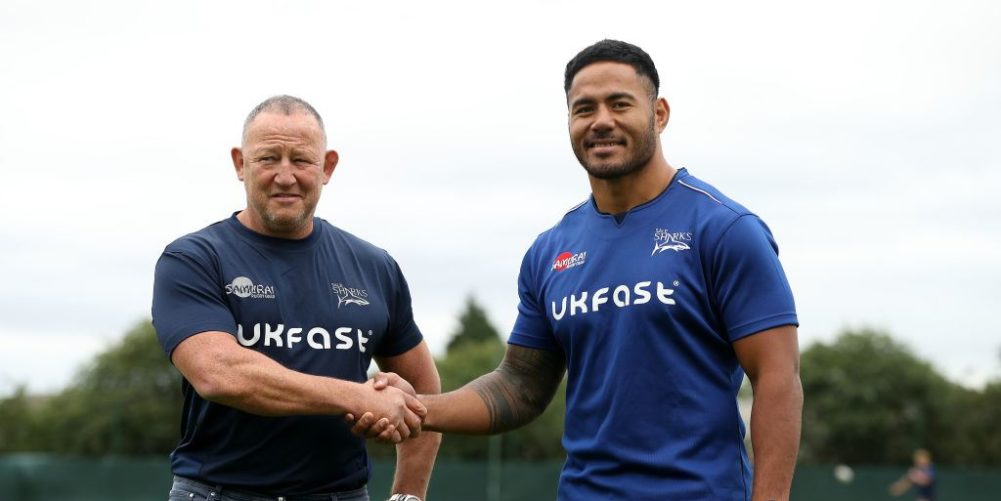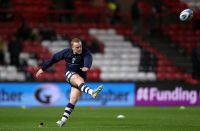NOTHING will ever quell my excitement at good rugby played at pace by smart, talented players, although I must admit that before lockdown I was tired with the lack of action being taken to improve some aspects of the game.
The good news is that the Premiership restart will almost be like the beginning of a new season, because the weather will be pretty good, the grounds firm, and the players keen and energetic. That suggests to me that we will see some high-scoring, open, entertaining games.
I’m going to watch Exeter against Leicester on Saturday, so I will get to see the Tigers for the first time under Steve Borthwick as head coach. Leicester were a club with a great forward tradition and reputation, until they were overtaken by Exeter and Saracens.
Now the Tigers have become ‘the team that were’ and it would be some miracle by Borthwick if they suddenly reasserted themselves very quickly, and climbed the table. My feeling is that Borthwick will need the matches at the end of this season, and then a further short pre-season between the end of October and the new Premiership 2020-21 season starting on November 21, to get his team in shape.
In the meantime, it is hard to see Leicester, or anyone else, getting in the way of Exeter’s route to the Premiership final.
At the same time as looking forward to watching some live rugby again, including an array of current internationals, I’m also curious to experience how strange and eerie it is being at a ground like Sandy Park, which is usually jumping and buzzing.
It will be interesting seeing how the players adapt when there is no interaction with the crowd. There will be no fans to throw the ball back to hookers – usually accompanied with a bit of free ‘advice’ – and I’m sure that those wisecracks on the touchline will be missed.
It will be unbelievably strange in some ways, but it has not changed my view that some of the most important decisions will take place off the field. I do not believe that I have the answers to everything in Rugby Union, but one area where I’m convinced I have it right is in the call to reduce the number of replacements. My wish forever-and-a-day is to lessen the number of substitutions because I’m convinced that if we do it the game will get such an uplift.
My main reservation is that there is not enough action among decision-makers to reign-in the number of substitutions, and I’m very disappointed that there has not been more support from the RFU and other governing bodies. The game could be so much better if we went back to having only two or three subs, and only for injury.
When I am sat watching 25 phases of play, and the ball does not get advanced any more than ten metres, it simply does not hold my attention. I want to see clever rugby where a lot of different approaches are used.
The club that is promising to take the lead in that area are Bristol. They are dedicated to playing an open style of ball-in-hand rugby, and with the brilliant Fijian Semi Radradra joining Charles Piutau in the backline, they should be good to watch.
Exeter have the ability to play in a number of ways. They are effective whether it is getting into the opposition half quickly, and then going through the phases to apply pressure, or counter-attacking from deep.
With Stuart Hogg at full-back that’s always on, and nothing will change. With Hogg the Chiefs have the dual option of getting him to smash a 60 metre kick downfield if he sees space at the back, or to run it back 20 metres very quickly.
Sale Sharks have acquired Manu Tuilagi, but while some may say that he’s the last missing link in the chain to building a title-winning side, I cannot see an outside-centre being quite that influential. He is a very good player, but the side that becomes champions will have the best 9-10 combination in the league.
Until lockdown Exeter were in a good place with Nic White at scrum-half and Joe Simmonds at fly-half, but with White returning to Australia, the Chiefs face a real challenge to replace the Wallaby international.
White brought steadiness as well as energy and experience, but Exeter have options at 9 in Stu Townsend and new signing Sam Hidalgo-Cline, who has 12 Scotland caps. They also have the benefit of depth at 10 with Simmonds and the veteran Gareth Steenson underpinning the half-back combinations at Sandy Park for the last few seasons.
Sale, who begin the restart in second place, five points behind Exeter, have Steve Diamond as their main mouthpiece – and you read a lot more about what he thinks than you hear from the Sharks players. They had a period where they really struggled to win away from home, but this season they have sneaked under the radar and could mount a serious challenge.
However, I don’t get the sense that it’s their time, especially as before lockdown they had a home league loss to Exeter, as well as two European Cup pool defeats, and an away defeat at Bristol. To be contenders you usually have to start beating the top teams away from home.
People will point to Faf de Klerk making a difference for Sale in the same way that he does for South Africa, but I’m not sure it’s comparable.
When he plays for the Springboks he’s got the equivalent of the Himalayas, the Andes, and the Alps in front of him, but he hasn’t got that sort of pack at Sale. The kilos might be similar, but the power isn’t.
De Klerk is a difficult scrum-half to pin down, and the louder and more frenetic it gets, such as in the knock-out games of big tournaments, the more he is in his element. He is a big-match player, but during this restart period he will be unable to feed off the occasion or the atmosphere in the same way. When you play in a final there is a wall of noise that makes the hairs stand up on the back of your neck, but this time it won’t be there.
Exeter remain favourites, but it could be a bun-fight if any team in the block from 2 to 6 in the table – Sale, Bristol, Northampton, Wasps and Bath – come out of the blocks fast and get a jump on the rest at the outset.
The other unpredictable factor is Saracens. They have a European Cup quarter-final against Leinster on September 19, and if they play their full strength side in the Premiership they could be the old Saracens, because, despite a number of departures, they still have a good squad.
It means that when Saracens face opponents like Bristol, Harlequins, Gloucester, London Irish, Wasps, and Sale, who they meet ten days before playing Leinster, that they will be up for it, and will still be hard to beat.
JEREMY GUSCOTT























